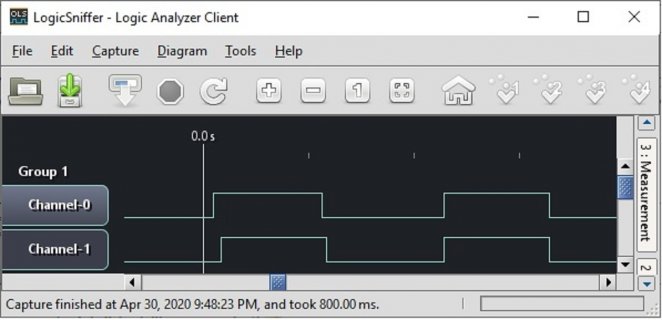RichardPeteSharp
Member
Thanks Leray,
I had my doubts about applying the mask to GPIOB_PDOR. So the following should work?
GPIOB_PDOR = (GPIOB_PDIR & ~b_mask) | (send_value & b_mask); // Modify only 6 bits in Port B
I was thinking that if the syntax above will safely modify the value on the port, it wouldn't actually matter if the bits within the port are contiguous. With the correct mask I can access all the available bits within a given port and access them all simultaneously.
Although a more straight forward parallel interface would be great, if I can get away with manipulating the ports using this approach, it would be versatile enough for my needs.
I had my doubts about applying the mask to GPIOB_PDOR. So the following should work?
GPIOB_PDOR = (GPIOB_PDIR & ~b_mask) | (send_value & b_mask); // Modify only 6 bits in Port B
I was thinking that if the syntax above will safely modify the value on the port, it wouldn't actually matter if the bits within the port are contiguous. With the correct mask I can access all the available bits within a given port and access them all simultaneously.
Although a more straight forward parallel interface would be great, if I can get away with manipulating the ports using this approach, it would be versatile enough for my needs.


